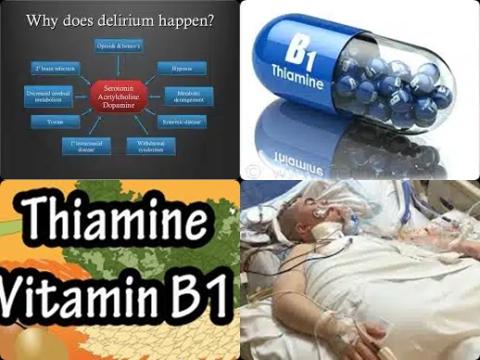
Objectives:
Do critically ill patients benefit of thiamine (vitamin B1) supplementation?
Study design:
This review article included 8 RCTs and 10 cohort studies.
Results and conclusions:
The investigators found in the analysis of RCTs, that thiamine supplementation showed a significantly 42% lower odds of developing ICU delirium [OR = 0.58, 95% CI = 0.34 to 0.98].
The investigators found a reduction in mortaliy was observed on performing fixed effect model analysis. However, a level of statistical significance could not be reached on performing randon effect model analysis [OR = 0.78, 95% CI = 0.59 to 1.04].
The investigators found in subgroup analysis of 13 studies in patients with sepsis, there was no difference in mortality between the 2 groups [OR = 0.83, 95% CI = 0.63 to 1.09].
The investigators concluded thiamine (vitamin B1) supplementation in critically ill patients shows a reduction in the incidence of ICU delirium among RCTs. However, there is no significant benefit in terms of overall mortality and mortality in patients with sepsis. Further, large scale randomized prospective studies are warranted to investigate the role of thiamine supplementation in critically ill patients.
Original title:
Effect of thiamine supplementation in critically ill patients: A systematic review and meta-analysis by Sedhai YR, Shrestha DB, […], Kashiouris MG.
Link:
https://pubmed.ncbi.nlm.nih.gov/34118501/
Additional information of El Mondo:
Find more information/studies on vitamin B1 right here.
Intensive Care Unit (ICU) delirium is a nonspecific, potentially preventable and often reversible disorder of impaired cognition, which results from various causes in ICU patients. The term “delirium”is derived from the Latin word “delirare” which literally means “to go out of the furrow” or figuratively “crazy or deranged”.